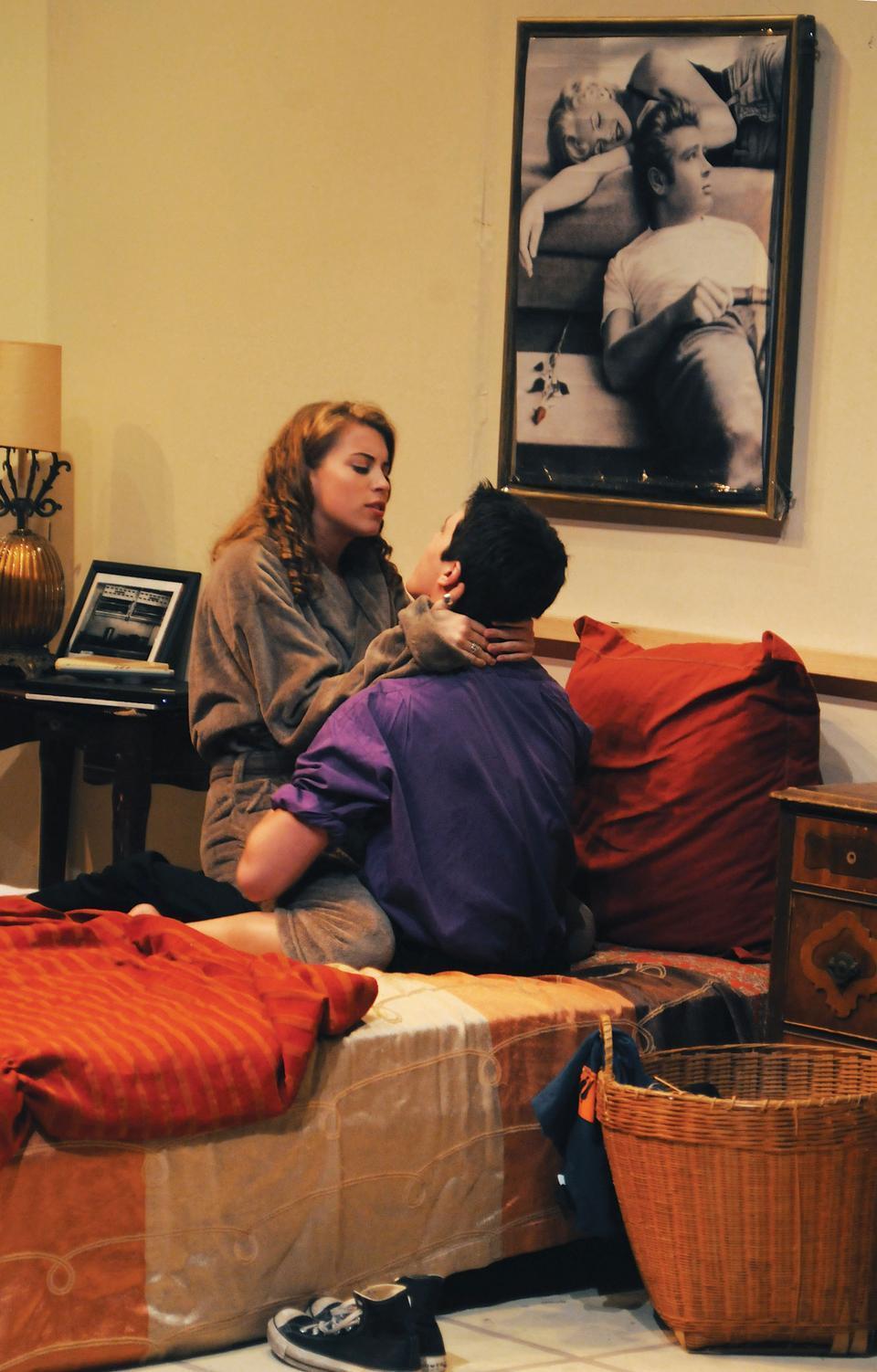
News
When Professors Speak Out, Some Students Stay Quiet. Can Harvard Keep Everyone Talking?

News
Allston Residents, Elected Officials Ask for More Benefits from Harvard’s 10-Year Plan

News
Nobel Laureate Claudia Goldin Warns of Federal Data Misuse at IOP Forum

News
Woman Rescued from Freezing Charles River, Transported to Hospital with Serious Injuries

News
Harvard Researchers Develop New Technology to Map Neural Connections
‘Last Call’ Exposes Emotion in Screenplay, Actors’ Flaws

The lifestyle of the characters in “Last Call”—which debuted at the Loeb Experimental Theatre on Thursday—will seem familiar to many Harvard students. The play centers around three bohemian, upwardly mobile Manhattanites whose nonchalant approach to sex and relationships develops into a convoluted love triangle that eventually collapses. Written and directed by Rheeqrheeq A. Chainey ’11, “Last Call” takes an episodic approach to portraying a complex and emotionally wrenching situation, one Chainey’s script handles with precision and empathy. An excellent production overall, the show’s only flaw is inevitable given the venue; despite the cast’s significant talent, the piece could benefit from older, more mature actors.
“Last Call” focuses on a sexually adventurous graduate student named Ellie (Jacqueline J. Rossi ’12), who casually dates her professor, James (Anthony J. Sterle ’11), and a lawyer, Sara (Vanessa B. Koo ’12). As she confronts difficulties with James and finds herself becoming more attached to Sara, there is a revelation that leads everyone involved to examine themselves and their romantic priorities.
The performances of Koo and Rossi begin solidly and improve throughout the evening, and by the climax of the play, it does not matter that they are too young for their roles—they are completely convincing. The same cannot be said of Sterle’s. The character of James is arrogant, jocular, and openly admits to “always wanting more sex, more weed, more pieces published.” But Ellie must use “Professor” as a term of endearment so we remember that he is not a college student plucked from the audience.
By the end of the first act, it is clear that James’ recklessness is at least partially a façade. The problem is that nothing lies underneath. Perhaps James was meant to be fundamentally empty. Perhaps the same role would seem more nuanced if an older actor were in it. Or perhaps Sterle has just neglected to endow his performance with much needed complexity—although for an actor of such obvious skill, this seems unlikely. Whatever the reason, James does not bring as much to “Last Call” as Sara and Ellie, and at times he feels like a third wheel, albeit one that is necessary to keep the story rolling.
However, the entire cast is very comfortable physically, which is critical in a play so reliant on body language and sexual tension. And despite the void in James’ character and the initial unease that comes from such young actors playing a professor, a lawyer and a graduate student, the cast ultimately rises to the challenge of the play’s demanding plot.
Set designer Snoweria Zhang ’12, who is also a Crimson photographer, matches the skill of the cast, nailing the sophisticated-but-subtle sensibility of New York’s intelligentsia. The main set of Ellie’s apartment is realistic but does not draw attention away from the characters. The sound is far less subtle. In “Last Call,” music is used exactly as it would be in a movie—to augment emotional episodes and to set the mood in moments without dialogue. This is an unusual technique, and the selection of mid-tempo alt-rock, mostly from a few years ago, is tasteful. However, the intimate nature of live theater—especially this play—renders a “soundtrack” unnecessary and overdramatic.
For better or for worse, the soundtrack does make the play feel more like a movie, and because of this, the parallels with Woody Allen’s early work are especially clear. Like Allen’s films, “Last Call” focuses on the sexual and intellectual neuroses of Manhattan’s educated classes. As a writer, Allen lavishes attention on characters that banter and bicker, and so does Chainey. This is where the actors’ otherwise solid performances fall short. Before the story’s key deception is exposed, the deepening relationship between Ellie and Sara is developed over quotidian chatter about job interviews and spilled coffee. Although talented, the actresses do not seem to have devoted as much time to understanding these crucial opening scenes as they have to the later ones; their words feel recited, not organic. But this is a minor issue, and one that is to be expected the first time a play is performed.
If the appeal of “Last Call” initially lies in the guilty pleasure of observing human relationships, knowing that they are about to go horribly wrong, by the end of the play both the characters and the audience have managed to find some truth—both the basic discoveries of who loves whom and about relationships generally. The audience is left with questions about the characters’ intentions, about the meaning of a sigh or a slammed door, but this is as it should be. Chainey’s story is ultimately successful, and deserves to be performed and interpreted elsewhere.
Want to keep up with breaking news? Subscribe to our email newsletter.
